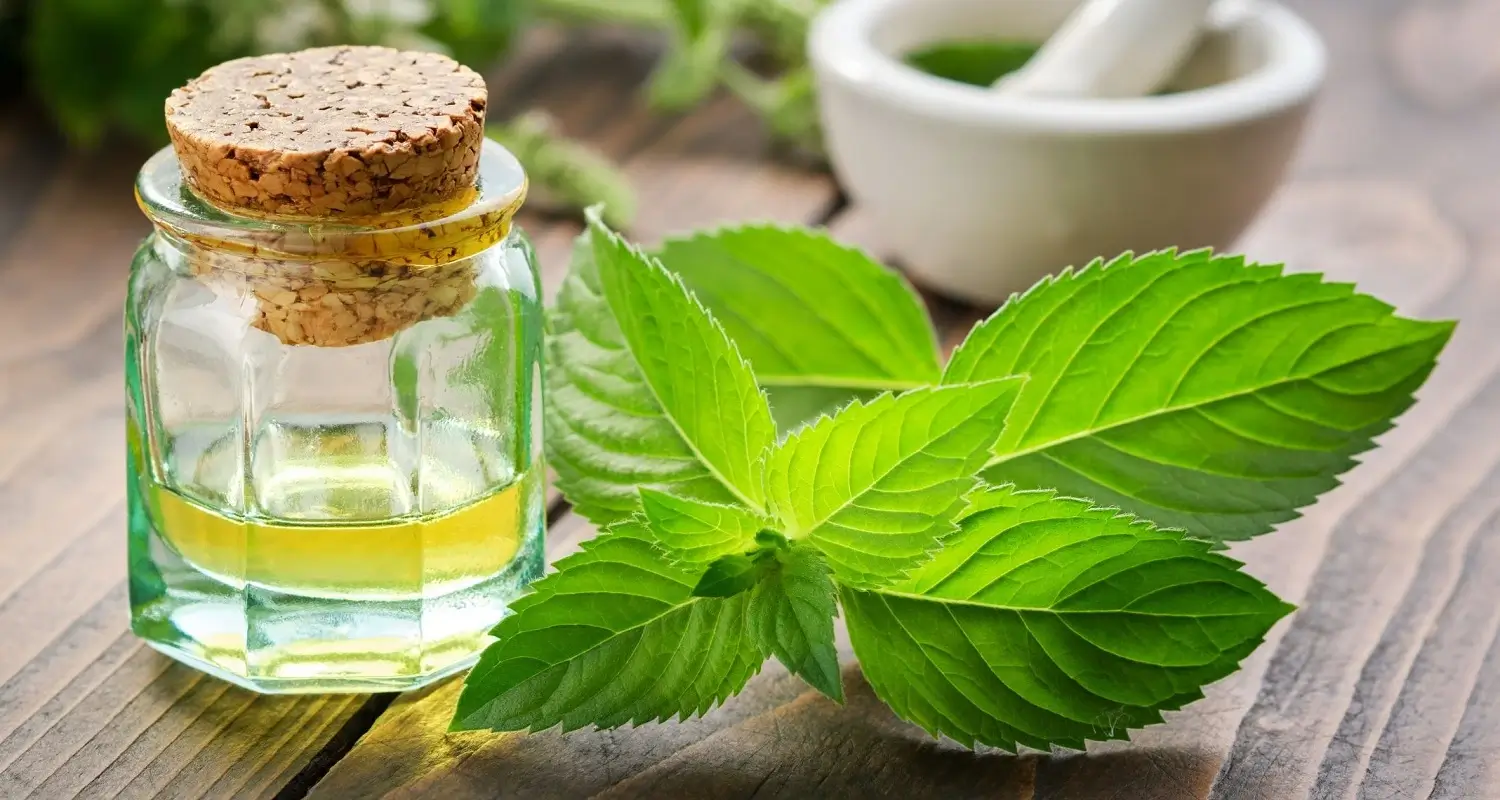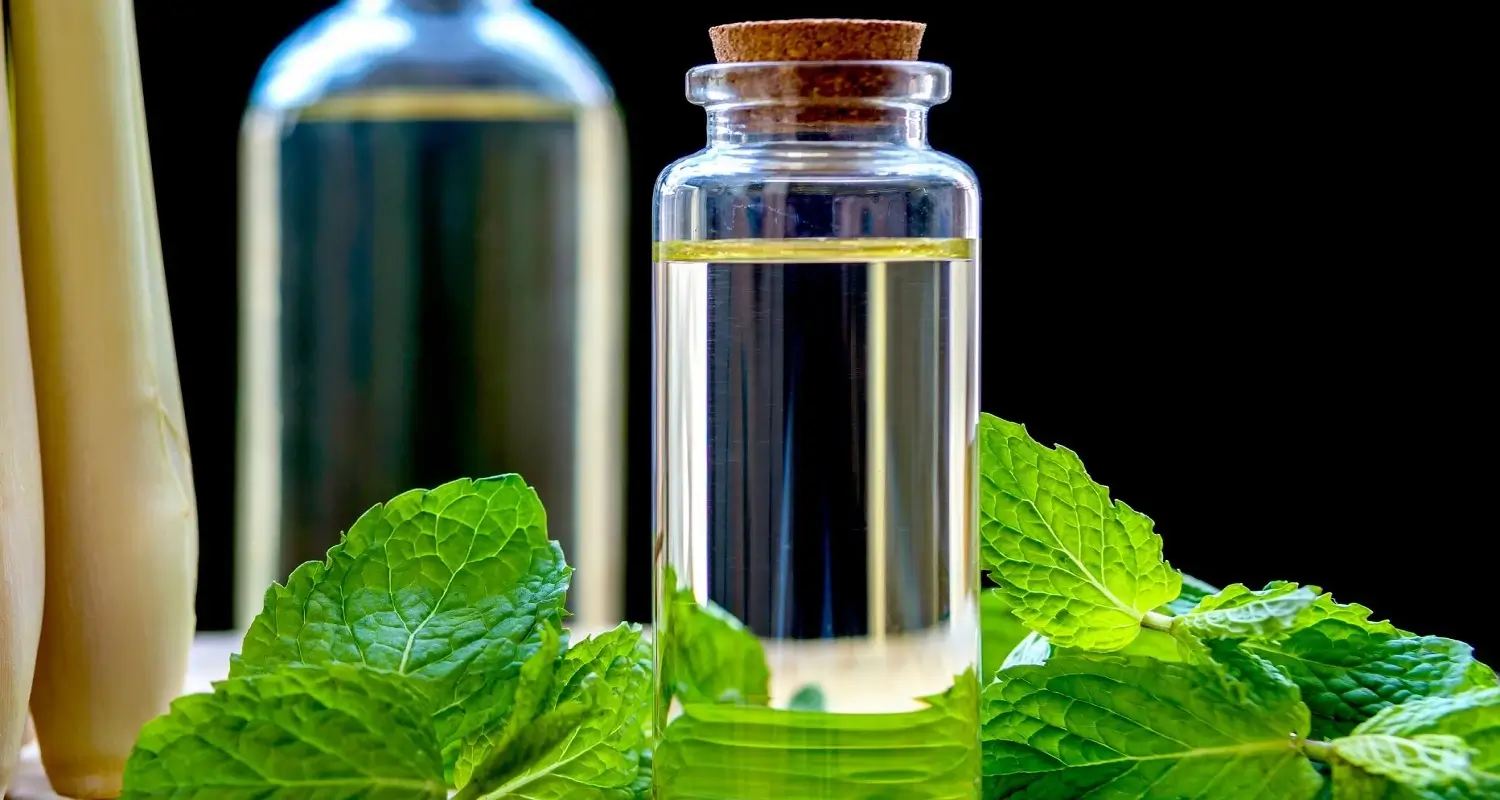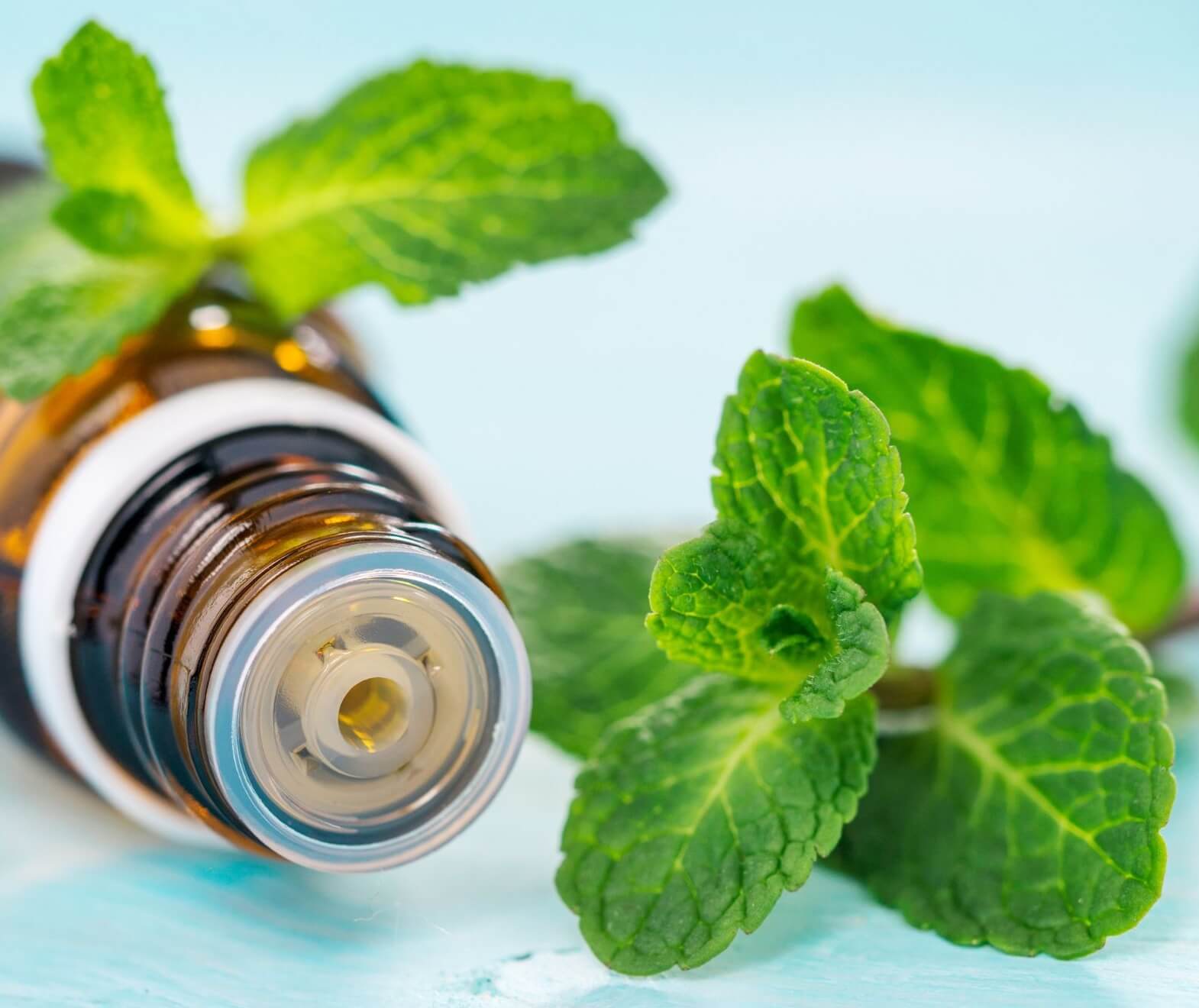Last Updated on: 12th December 2025, 05:47 am
Peppermint Oil for Toothache: A Complete Guide
Few experiences are as painful and uncomfortable as a toothache. It is likely that when experiencing severe dental pain, you will want to opt for a natural remedy to achieve the desired relief. Among the arsenal of home remedies and natural solutions, peppermint oil emerges as one of the main ones, not only for its refreshing aroma but also for its analgesic and anti-inflammatory properties. Join us to learn more about the benefits of peppermint oil for toothache, and how it can contribute to your oral health.
Peppermint Oil and Oral Health
Peppermint essential oil, distilled from the leaves of the peppermint plant, contains menthol, an organic compound with recognized calming effects. It is no surprise that it has been integrated into alternative dental practices and oral hygiene products such as toothpaste and mouthwash. Topically applying this oil to the affected gums or directly on the tooth can provide temporary relief from a toothache,
The Properties of Peppermint Oil
The active components of peppermint oil, such as menthol, carvacrol, and limonene, have significant effects when it comes to oral health. Menthol not only produces a cooling sensation but it also has antiseptic and anti-inflammatory properties, making it ideal for toothache relief.
Additionally, peppermint oil has been noted to have positive effects on local blood circulation, which may help reduce inflammation and promote healing. This is especially helpful when a toothache first appears, as careful application of the oil can offer relief while waiting for a consultation with a dental professional.

What does Science Say?
Current research into peppermint oil as a toothache solution has begun to unravel that the natural components of this product may be beneficial. Studies have indicated that menthol, one of the main compounds in peppermint oil for toothache, can act as a natural analgesic, providing pain relief and reducing inflammation in oral tissues. Furthermore, an investigation published in 2013 showed that peppermint oil has antimicrobial effects, which greatly contribute to improving general oral health. Another study showed that this essential oil has a powerful antifungal action, making it an excellent ally to combat and avoid candida infections.
Application Methods for Toothache
To use peppermint oil effectively for a toothache, it is wise to understand topical application techniques. A small amount of oil, diluted with a carrier oil such as coconut or olive oil, can be applied directly to the affected area, using a cotton swab or ball. This direct application allows the oil’s active compounds to work quickly to relieve pain.
1. Dilute a small amount of peppermint oil with a carrier oil, such as coconut or olive oil.
2. Apply directly to the affected area, using a cotton swab or ball.
3. Let the oil act, without rinsing.
Peppermint Oil for Toothache vs Other Remedies
When comparing peppermint oil to over-the-counter toothache treatments, it is clear that both have their advantages. While commercial products often contain a synthetic anesthetic and anti-inflammatories that provide quick and powerful relief, peppermint oil offers a natural alternative with fewer potential side effects. However, it is important to recognize that natural remedies may not be as immediate or potent as drug treatments.
On the other hand, within the spectrum of herbal remedies, the effectiveness of peppermint oil for oral pain compares favorably. Its easy availability and the extensive research supporting its use as a pain reliever make it a reliable option. Still, each individual may experience different levels of relief, i.e. what works for one may not work for another. Thus, it is pertinent to explore various options to determine the best personal remedy.
Clove oil and oregano oil are two more oils that can aid with dental health issues and treat toothaches.

Security Considerations
Be careful with allergies
It is crucial to be aware of possible allergic reactions, as some people may be sensitive to peppermint oil for toothache. Signs of an allergic reaction include redness, itching, and in severe cases, difficulty breathing. If these symptoms occur, it is important to discontinue use immediately and seek medical attention.
Controlled quantities
When it comes to dosage and dilution, best practices dictate being conservative at first. The high concentration of essential oils such as peppermint means that a small amount is enough to experience its effects. Furthermore, dilution is not only important to avoid skin irritation but also to ensure safe and effective distribution over the painful area.
Contraindications for use
There are also specific times when you should avoid using peppermint oil for dental problems. For example, in the presence of open wounds in the mouth or if an abscess has developed, treatment with essential oils should be postponed in favor of professional dental care. Additionally, the use of peppermint oil is not recommended for children, or pregnant or breastfeeding women without a doctor’s approval.
Don’t ignore the pain
A toothache is an alert given by the body, letting us know that something is not right with our teeth. There are many possible causes of toothache, so it is always important to visit a dentist to identify the source of the discomfort and proceed with the most appropriate treatment for each case. Remember that peppermint oil for toothache and other home remedies can be great allies in relieving dental pain until you get an appointment with a dentist, but they should never replace professional care.

Conclusion
Peppermint oil emerges as an effective home remedy for toothache, offering analgesic and anti-inflammatory properties that temporarily relieve the discomfort. Despite its usefulness, peppermint oil for toothache should be applied with caution and should never replace professional dental care, especially in cases of severe or persistent pain. Its ease of use and ability to reduce inflammation and fight microbes make it a valuable addition to the home first aid kit for dental emergencies.
Frequently Asked Questions
How to apply peppermint oil to relieve toothache?
Peppermint oil has earned a reputation as one of the most effective natural remedies for toothaches. Applying 3 to 4 drops directly to the affected tooth can produce a significant numbing effect in the area. An equally effective alternative method is the use of oregano oil, applying it only to the tooth (avoiding the gums) for a period of five to ten minutes.
Is it possible to apply peppermint oil on your teeth?
Peppermint oil is commonly used in the technique known as “oil pulling.” This practice turns out to be an effective method to reduce dental plaque and contribute to cleaning both teeth and gums, benefiting oral health in multiple ways. Rinsing with diluted peppermint oil can be an effective solution against bad breath or an unpleasant taste in the mouth.
Is it advisable to apply peppermint oil directly to the gums?
Peppermint oil is effective in minimizing bacterial plaque and contributing to the cleaning of teeth and gums, while contributing to oral health in general. Using mouthwashes with diluted peppermint oil can be an efficient solution to combat bad breath or an unpleasant taste in the mouth. Direct application also has its benefits for a toothache.
How to dilute peppermint oil for the mouth?
Dilute the oil in one cup of filtered water. Use 20 drops of the essential oil of your choice. In addition to peppermint, good best options are cinnamon, cloves, wintergreen, or tea tree oil.
Share:
References
1. Dds, G. A. (Sep 16, 2022). Top 5 essential oils for toothache. Channel Islands Family Dental Office. https://cidentist.com/best-essential-oils-for-toothache/
2. Ponsford, S. (Dec 14, 2017). 9 home remedies for a toothache. Medicalnewstoday.com. https://www.medicalnewstoday.com/articles/320315
3. Four essential oils that can help with a toothache. (May 19, 2021). Healthline. https://www.healthline.com/health/dental-and-oral-health/essential-oils-for-toothache
4. Peppermint oil. (Apr 6, 2022). WebMD
https://www.webmd.com/a-to-z-guides/peppermint-oil-uses-benefits-effects
5. Thosar, N., Basak, S., Bahadure, R. N., & Rajurkar, M. (2013). Antimicrobial efficacy of five essential oils against oral pathogens: An in vitro study. European Journal of Dentistry, 07(S 01), S071–S077. https://doi.org/10.4103/1305-7456.119078
6. Kumar, G., Jalaluddin, M., Rout, P., Mohanty, R., & Dileep, C. L. (2013). Emerging trends of herbal care in dentistry. Journal of clinical and diagnostic research : JCDR, 7(8), 1827–1829. https://doi.org/10.7860/JCDR/2013/6339.3282
7. Taheri , J. B. , Azimi , S. , Rafieian , N. , & Zanjani , H. A. (2011). Herbs in dentistry.International dental journal, 61(6), 287-296.
-
Nayibe Cubillos M. [Author]
Pharmaceutical Chemestry |Pharmaceutical Process Management | Pharmaceutical Care | Pharmaceutical Services Audit | Pharmaceutical Services Process Consulting | Content Project Manager | SEO Knowledge | Content Writer | Leadership | Scrum Master
View all posts
A healthcare writer with a solid background in pharmaceutical chemistry and a thorough understanding of Colombian regulatory processes and comprehensive sector management, she has significant experience coordinating and leading multidisciplina...Recent Posts















